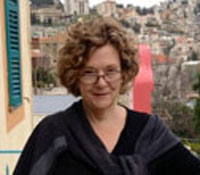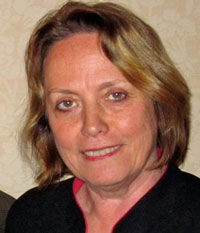By Rina Lazar (Israel) and Adrienne Harris (USA)
In our next IARPP Colloquium we will discuss Avgi Saketopoulou’s (USA) recent paper, “The Draw to Overwhelm: Consent, Risk, and the Re-Translation of Enigma.” The colloquium will take place via email from Monday, October 29, through Sunday, November 11, 2018. In our recent colloquia we dealt with our non-human surroundings, with death, and with race. Now we come to psycho-sexuality, back to the core of the psychoanalytic project.
Saketopoulou’s work advances an alternative exegesis of perverse sexuality that permits an analyst to regard it not from within a state of alarm but with the capacity to recognize perversity’s generative potential. Relying on Laplanche’s theory of infantile sexuality, she suggests that the sexualization of suffering is developmentally installed in sexuality’s very ontology. Although frequently and reflexively conceptualized in psychoanalysis as a demise of the sexual function, perversion can be oftentimes sexuality’s aspiration.
In this paper Saketopoulou begins a very overdue and important discussion about consent and its complication and contradictions. She suggests the term limit consent, which does not function under the auspices of conscious control and aims to bring about experiences of novelty and surprise. Moving beyond the binary of active/passive, limit consent engages the subject’s passibility (Lyotard), a soft surrender (Ghent) to an other who, in turn, has to agree to push the former’s limits in order to produce fresh experiences. Limit consent, this paper argues, enables the pursuit of states of productive dysregulation that Saketopoulou calls overwhelm.
Neither the purview of repetition compulsion, nor of self-destructiveness, overwhelm is a surplus state that issues from within an attuned dyad and which is best understood in reference to the economy of infantile sexuality. At its apex, it can bring about a shattering of the ego (Bersani). Ego shattering can function akin to Laplanche’s notion of the un-binding of the ego (2005/2011). It can occasion the un-tethering of translations that may be at an impasse from their encrusted and established meanings. In the context of ongoing analytic work, these newly freed enigmatic bits can be intercepted in the work—and specifically in the transference/countertransference—reshuffling the deck, and making room for new translations that may better serve the subject.
In her introduction of the term overwhelm, Saketopoulou contributes to the contemporary discourse on sexuality in a creative and transformative way. In this colloquium we are looking forward to discussing sexuality, perversions, and the enigmatic dimension of our life, as well as our limits and our cooperation in transgressing them.
The panelists for this colloquium will include:
Gila Ashtor (USA)
Sue Austin (Australia)
Shachaf Bitan (Israel)
Ginna Clark (USA)
Patricia Clough (USA)
Rosario Castaño (Spain)
Katina Ellis (Australia)
Denise Salomao Goldfajn (Brazil)
Jonathan House (USA)
Julie Leavitt (USA)
Jade McGleughlin (USA)
We also thank our Colloquium Committee members for their invaluable contributions to thinking about and selecting papers and panelists:
Galit Atlas (USA), Alejandro Ávila Espada (Spain), Mitchel Becker (Israel), Cathy Hicks (Australia), Steven Knoblauch (USA), Steven Kuchuck (USA), Julie Leavitt (USA), Charles Levin (Canada), Susi Federici Nebiossi (Italy), and Tessa Philips (Australia). We thank Galit Atlas and Tessa Philips in particular for their work and wish them a happy rest as they cycle off this committee, no doubt for other duties. We welcome Marie Saba from Peru, María José Mezzera from Chile, and Mia Medina from Turkey who are joining the committee.
We wish for broad international participation in this discussion among the author, the panelists, and the larger community. We look forward to this exciting collaboration.
Regards,
Adrienne Harris and Rina Lazar
Co-chairs, IARPP Colloquium Committee
 Rina Lazar, PhD
Rina Lazar, PhD
Email Rina Lazar
 Adrienne Harris, PhD
Adrienne Harris, PhD
Email Adrienne Harris

